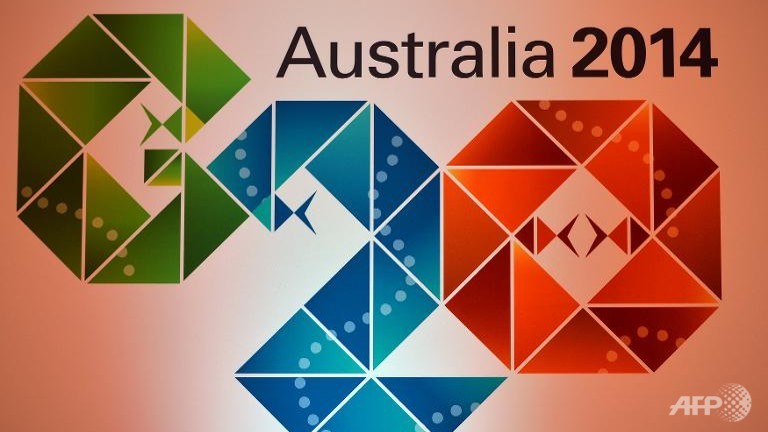G20 set to back OECD global tax avoidance plan

(AFP/Saeed Khan)
CAIRNS: OECD chief Angel Gurria on Saturday (Sep 20) handed the G20 recommendations on the biggest changes to international tax rules in more than a century in a bid to tackle corporate tax strategies that are costing countries billions. The secretary-general said the plan, which seeks to close international loopholes used by multinational firms to avoid paying large amounts of tax, was "the most prominent step towards the modernisation of the international tax system in a hundred years".
Gurria revealed that global efforts to crack down on tax avoidance had already identified €37 billion (US$53 billion) from voluntary disclosure programmes involving 24 countries over five years, adding that "more will come". The project "is about tackling aggressive practices which erode the tax base and artificially shift corporate profits to low- or no-tax jurisdictions", he said at the G20 meeting of finance ministers and central bankers in the Australian city of Cairns. "These are places where there is no link between the profit generated and the underlying value-creating activity."
Australian Treasurer Joe Hockey, who is chairing the G20 meeting, said finance ministers had agreed to tackle base erosion and profit-shifting "to make sure companies pay their fair share of tax". "We have also agreed to increase transparency and crack down on tax evasion," he said in a statement. He added that G20 nations were set to endorse the finalised common reporting standard for the automatic exchange of information between countries on tax issues on Sunday. "This will allow us to identify offshore income of multinationals and high-wealth individuals, so there will be nowhere to hide," Hockey said.
Some countries, including Australia, are set to implement the reporting standard in 2017, while others will start in 2018. Australian Tax Office commissioner Chris Jordan said his country raised A$480 million (US$429 million) in additional tax revenue last year from the exchange of information.
EVERYBODY NEEDS THE MONEY
The first recommendations of the Base Erosion and Profit Shifting Project (BEPS) has seven goals that would help to ensure companies pay tax in the countries where they generate income. They were compiled by 44 countries, including all the G20 members, Gurria said.
They include proposals on closing loopholes that allow for the abuse of tax treaties and to neutralise the "cash boxes" of multinational businesses kept offshore in low-tax jurisdictions, which Gurria estimated at about US$2.0 trillion. They also seek to address the impact of the digital economy on tax.
Multinational firms, including digital giants such as Apple and Google, have been accused by countries of using tax strategies that minimise their payments. "Right now there is a unifying criteria - everybody needs the money. We're short," Gurria said as he acknowledged the impact of the tax revenue shortfall on countries still struggling to recover from the global financial crisis.
Hockey added that it was "absolutely essential" for the tax reform measures to be on the agenda of G20 leaders at their November summit in Brisbane. "Going after the tax cheats can be politically very difficult in some countries, so we want to give everyone air cover for going after the tax cheats," he said.
Business leaders from the G20 countries - known as the B20 - said they "strongly support" the OECD plan, and that "profits should be paid in the countries where income is earned". "We all want tax policies to operate on a level playing field," B20 Australia chair Richard Goyder said Saturday.
What the stars mean:
★ Poor ★ ★ Promising ★★★ Good ★★★★ Very good ★★★★★ Exceptional
Latest News
More News
- NAB Innovation Centre underscores Vietnam’s appeal for tech investment (January 30, 2026 | 11:16)
- Vietnam moves towards market-based fuel management with E10 rollout (January 30, 2026 | 11:10)
- Vietnam startup funding enters a period of capital reset (January 30, 2026 | 11:06)
- Vietnam strengthens public debt management with World Bank and IMF (January 30, 2026 | 11:00)
- PM inspects APEC 2027 project progress in An Giang province (January 29, 2026 | 09:00)
- Vietnam among the world’s top 15 trading nations (January 28, 2026 | 17:12)
- Vietnam accelerates preparations for arbitration centre linked to new financial hub (January 28, 2026 | 17:09)
- Vietnam's IPO market on recovery trajectory (January 28, 2026 | 17:04)
- Digital economy takes centre stage in Vietnam’s new growth model (January 28, 2026 | 11:43)
- EU Council president to visit Vietnam amid partnership upgrade (January 28, 2026 | 11:00)
















 Mobile Version
Mobile Version